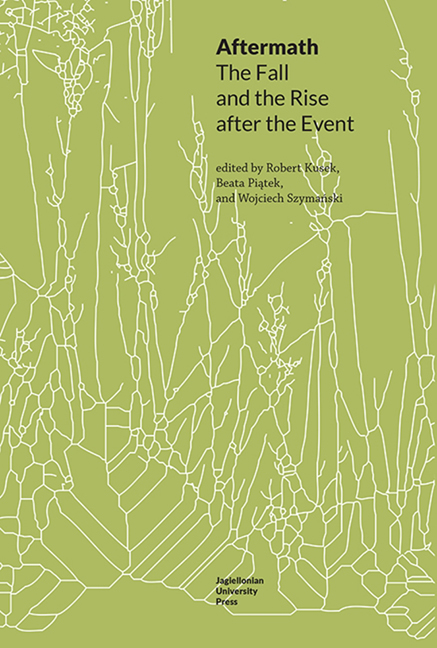The Promise of a Hospitable Memory: Encounters on the Threshold
Published online by Cambridge University Press: 06 November 2021
Summary
We could easily be made to believe that nothing happened, and yet we have changed, as a house that a guest has entered changes. We can't say who has come, perhaps we will never know, but many signs indicate that the future enters us in this way in order to be transformed in us, long before it happens.
(Rilke 1984: 83)The Aftermath of Inheritance
In Specters of Marx, Derrida claims that for a living being to “learn to live” she must first come to terms with death. Such a lesson, he explains, is taught “from the other at the edge of life,” at that border between life and death that “can only maintain itself with some ghost” (Derrida 1994: xvii). In Aporias, Derrida (1993) revisits this spectral threshold in his consideration of the “arrivant.” Literally “that which, or one who arrives,” arrivant derives from the Old French ariver “to reach shore,” (from the Latin ad “to,” ripa “shore”). In this way, arrivant is aligned with the notion of the border or threshold. And, as is to be expected from such a liminal state, Derrida's arrivant blurs time and identity: it is at once future and unknown, foreign and strange, ghost, revenant, the dead, and the welcome and welcomed. “Such an arrivant affects the very experience of the threshold” (33) he writes, because in her arriving she “does not cross a threshold separating two identifiable places,” but instead “surprises the host – who is not yet a host or an inviting power – enough to call into question […] the very border that delineated [her] home” (34). It is this arriving unannounced that challenges our notions of hospitality. After all, how do we welcome that which is uninvited and unknown?
The arrivant in the context of this paper appeared as a moment of inheritance: just a handful of letters and photographs found in my dead father's belongings that recounted the unravelling of a life: the life of my Polish grandmother – a woman I never knew and who was rarely spoken about – and who was deported to and died in Siberia under Stalin in the 1940s.
Information
- Type
- Chapter
- Information
- AftermathThe Fall and the Rise after the Event, pp. 161 - 176Publisher: Jagiellonian University PressPrint publication year: 2022
